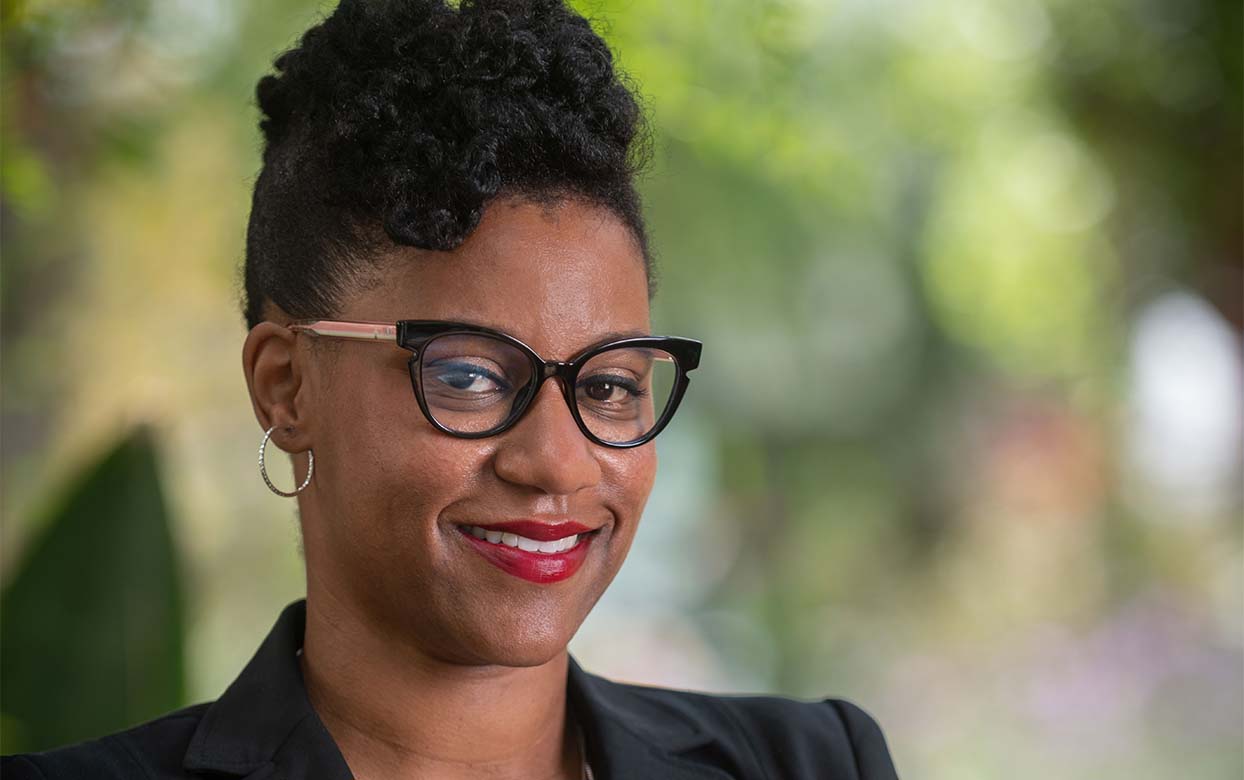This year, Desert Botanical Garden celebrates Black History Month by honoring and highlighting pioneers in environmental science, local leaders in urban farming whose work and advocacy are making significant impacts in their communities, and horticulturalists who are sharing stories of Black Americans and their contributions to the industry.
All month long, the Garden will share five things to know about these leaders through its social media channels and on the blog.
Find out how Dionne Washington co-founder of Project Roots is helping increase access to healthy foods to underserved communities in south Phoenix and at Spaces of Opportunity.
Hear about how Lafayette Frederick was inspired by famous botanist Dr. George Washington Carver at a young age and studied fungi.
Read about Atlanta-based horticulturalist Abra Lee who researches and shares Black garden history through social media, lectures and teaching at Auburn University.
And learn about the Civil Rights and botany work of Dr. Thomas Walter Gaither.
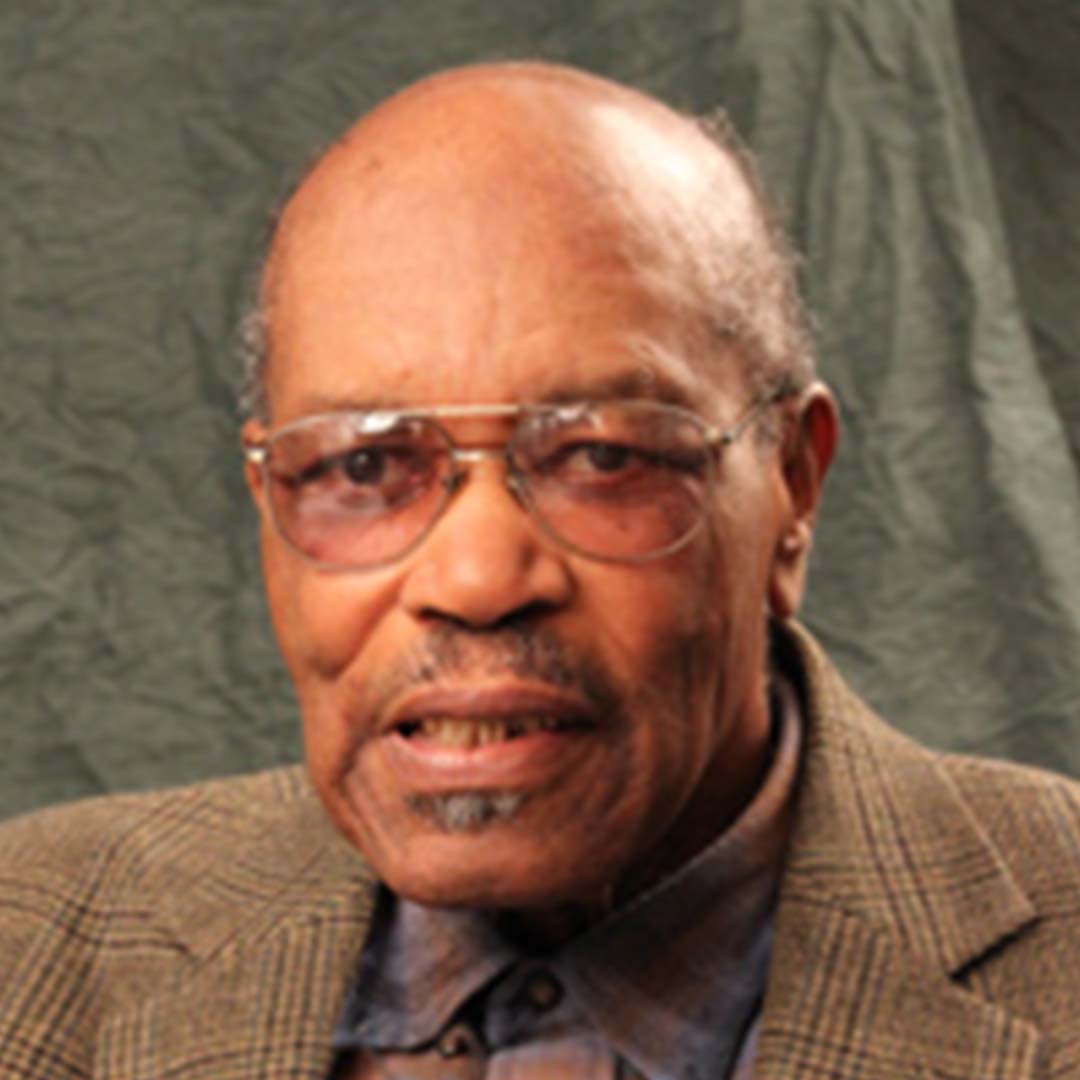
Lafayette Frederick
Lafayette Frederick was a plant pathologist and mycologist whose research focused on fungal disease of plants, spore development of fungi and the systematics and ecology of acellular slime molds. He was born March 9, 1923, in Dog Bog, Mississippi, and passed away on Dec. 29, 2018.
Here are five things to know about Lafayette Frederick:
1. Interest in Botany
At a young age, Lafayette was exposed to plants and the natural world, growing up on a variety of sharecropper farms. But his interest in botany started as an undergraduate student at Tuskegee Institute (now Tuskegee University) where he was inspired by the famous botanist and plant chemist Dr. George Washington Carver.
2. Drafted to the War
During World War II, Lafayette was drafted into the U.S. Navy, which took him to Hawaii. He stayed in the Aloha State as a civilian after his duties and spent two years as a part-time graduate student at the University of Hawaii, collecting and identifying native Hawaiian plants. It was there he met a mycologist, a researcher who works with fungi and studies the diversity and evolution of mushroom-forming fungi, who inspired his career.
3. His work
Lafayette worked on several projects that involved research on antifungal substances of strain of bacterium. He worked and chaired at several colleges, including Southern University, Atlanta University and Howard University. He also was responsible for integrating the Association of Southeastern Biologists meeting, which did not allow its African American members to attend.
4. Plant Named After Him
There is a species of Hawaiian shrub, Cyrtandra Frederickii, named after Lafayette by Harold St. John, former chairman of the University of Hawaii department of botany.
5. Legacy
His legacy was characterized by supporting and mentoring students, progressing the value of equality and integration, and furthering the progress of scientific discovery.
Image courtesy of Washington State University.
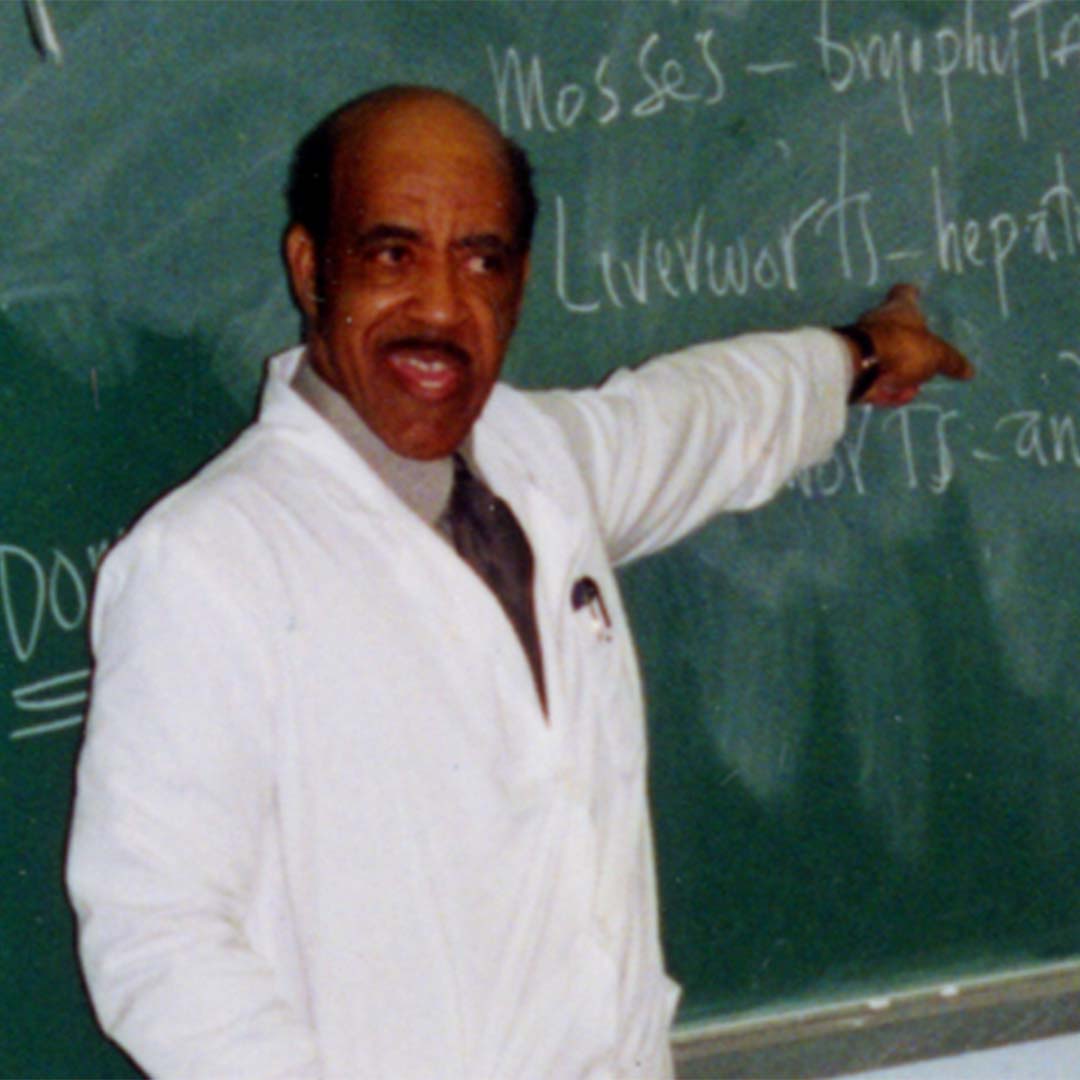
Dr. Thomas Walter Gaither
Thomas Walter Gaither is a Civil Rights activist and biologist. He was born in Great Falls, South Carolina. He taught biology at Slippery Rock University for almost four decades. He earned a Ph.D. degree in biology from the University of Iowa. But his career was distinguished by his civil rights work.
Here are five things to know about Dr. Thomas Walter Gaither:
1. Parents Were Teachers
Thomas grew up the son of two teachers in the segregated south. His father resigned in protest after realizing he was being paid less than his contract said, and less than his white colleagues. At a young age, he grew up in a household where education and the fight for equality were both important.
2. Civil Rights Work Started in College
He attended Claflin College and lead the college’s National Association for the Advancement of Colored People (NAACP) chapter.
3. Was Arrested for His Civil Rights Activist
During his time in college, Thomas organized a sit-in at a segregated diner in South Carolina. He recruited eight other men who would later be known as the “Friendship Nine.” The men were arrested and charged with trespassing. A judge sentenced the group to either a $100 fine or 30 days of hard labor. The group of men chose the latter as a form of protest that ushered the “Jail, no bail” movement that oppose giving money to governments supporting Jim Crow laws. After their release, Thomas started organizing with the Congress of Racial Equality (CORE) for the 1961 Freedom Rides.
4. Served in the Military
Thomas’ work as a central organizer for civil rights ended when he was drafted into the army. Because of his history of civil rights-related arrests, he was determined ‘lacking in moral character’ and was able to return to school.
5. Has a Scholarship Named After Him
In 1968, he joined Slippery Rock University, teaching biology until he retired in 2007. The college honored him with an award for his work creating diversity on campus and created a scholarship in his name. The Thomas W. Gaither Scholarship offers $1,000 annually for an entering student majoring in biology with the intention of becoming a professional biologist, biology teacher or entering the medical field.
Image courtesy of Slippery Rock University.
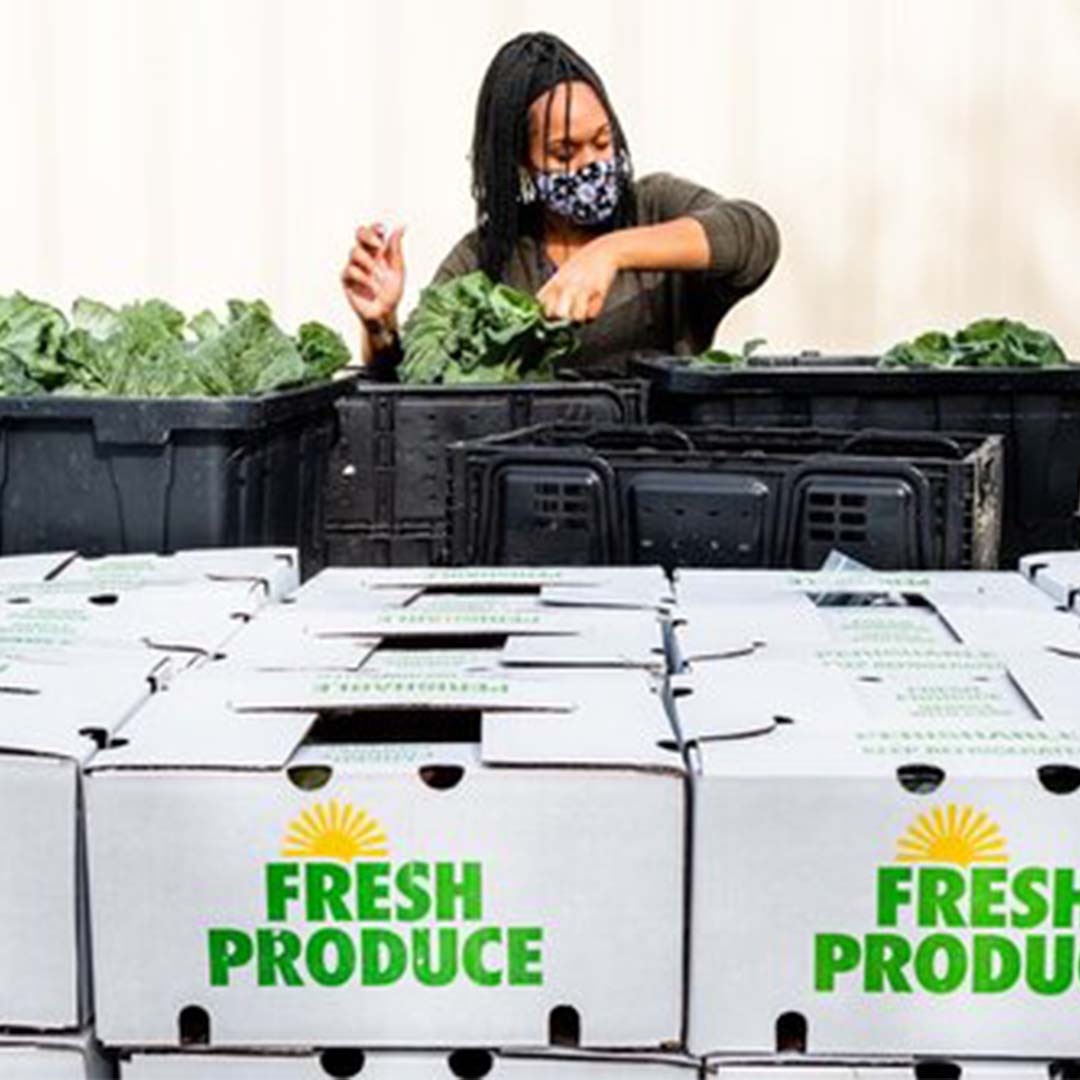
Dionne Washington
In late 2019, cofounders Dionne Washington and Bridget Pettis launched Project Roots, a Phoenix-based nonprofit that is helping underserved communities grow their own food and offers a seasonal produce bag delivery service. Project Roots also provides food boxes to those in need and those experiencing homelessness. The nonprofit has a community farm at Spaces of Opportunity, a Garden partner.
Here are five things to know about Dionne Washington:
1. Started Growing Tomatoes
Cofounders Dionne and Bridget started growing tomatoes at a now defunct community farm. They grew 50-foot rows of tomatoes. After growing a surplus of tomatoes, the pair decided to offer them to communities and other organizations for free. Then, they started to make soup from the extra tomatoes. “We decided we could do something special. We could grow our own food. We could give that food away to people who need it. And that’s how Project Roots started,” Dionne says.
2. Business Partner was a former Phoenix Mercury player
Dionne’s business partner is former Phoenix Mercury player Bridget Pettis. While Dionne focuses on the business operation side of the nonprofit, Bridget spends her time among the row of produce Project Roots grows at Spaces of Opportunity, where they have been for two years now.
3. Was a Business Owner
Before partnering with Bridget, Dionne ran her own business and earned her MBA in October 2021.
4. Mobile Food Delivery Service
Starting March 1, Project Roots will use a truck for its mobile delivery service of its seasonal produce. The nonprofit currently delivers produce bags, but with the help of a grant last year, Project Roots will be able to use a truck to streamline and increase access to its delivery service. Dionne says the organization is currently fundraising to purchase its own truck for next year. You can help out Project Roots in a number of ways. Sign up to volunteer, donate land or donate online.
5. Most Proud Moment
Dionne is really proud of people and partners who have helped build awareness of Project Roots. “I’m most proud of the people who have come together to activate our community and let them know we are here for them. We’ve done an excellent job, and I think it’s because of our partners at Spaces of Opportunity, Desert Botanical Garden and people who come to our classes. I’m proud of my team and the growth that has gotten us here.”
Image courtesy of Project Roots.
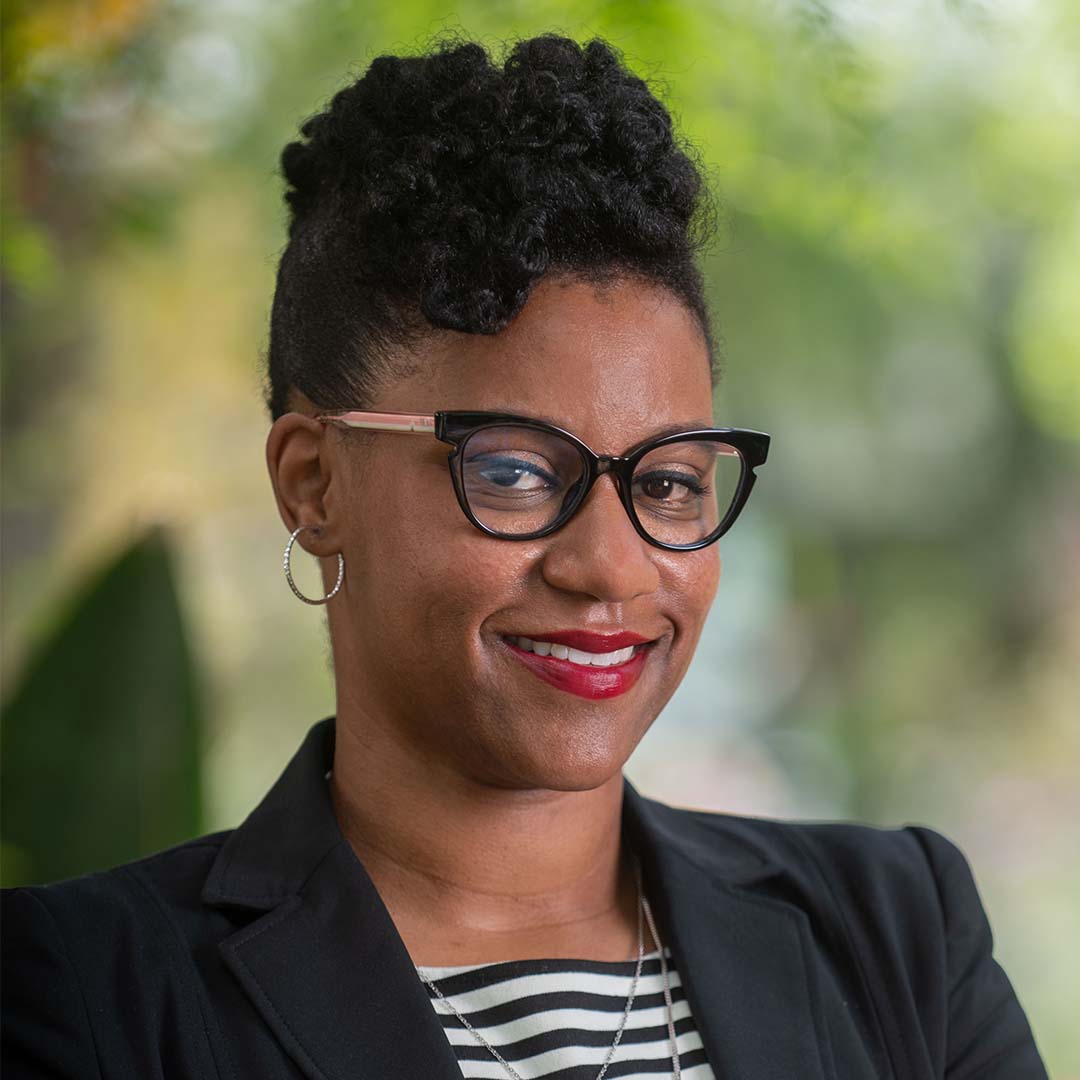
Abra Lee
Georgia native Abra Lee is a horticulturalist who over the course of career developed a passion to share the stories of Black Americans and their contributions to the industry and the American landscape.
Growing up listening to stories of grandparents and elders, Abra was inspired by the generations than came before her and saw a need to retell those stories to inspired and educate generations to come. She earned a degree in ornamental horticulture from Auburn University. She has a book about the topic “Conquer the Soil,” which is set to be published in early 2023.
Here are five things to know Abra Lee:
1. Interest in Horticulture
Abra grew up in Atlanta but would spend her weekends at her aunt’s in rural Barnesville, Georgia. Her dad was director of parks for Atlanta. She also spent weekends visiting parks throughout the city. Abra gained an interest in horticulture after watching horticulture students studying a sugar maple tree at Auburn University.
2. Horticulture Work
During college, Abra had internship as an estate gardener in Atlanta, which exposed her to high level of horticultural artisanship. She maintained lawns of NFL owners. Later in her career, she was landscape manager for Hartsfield-Jackson Atlanta International Airport and George Bush Intercontinental Airport and served as a county extension agent with the University of Georgia. During 2019 to 2020, she was part of the Longwood Gardens fellowship, a prestigious leader-development program sponsored by the garden.
3. Her Interest in Black Garden History
Abra’s mom, who was an educator, gave her a book that told the story of how Auburn University would sneak George Washington Carver at night to teach professors. This sparked her curiosity to further look into these stories and share them to the public. “I was very much deeply making it my life’s purpose to finding these stories and rich history because it was exciting to me and certainly motivating,” Abra says. She created a social media account that highlights these figures and has also been asked to speak about the topic at several botanical gardens and institutions across the country.
4. Does Her Own Research
When Abra started digging in to these stories, she was reading several pieces of literature from W.E.B. Du Bois to civil rights and social justice icons. “In The Souls of Black Folk,’” Du Bois talks about the three gifts Black people brought to the Americas. He talked about the gift of spirit, story/ song and their gift of what he called strength and brawn, which was their ability to conquer the soil. The words jumped out the page. That’s who I am. That’s what Conquer the Soil is,” Abra says. This independent research helps her retell stories of historical figures and put them in perspective in our current time.
5. Has a Book Coming Out in 2023
Abra, who started sharing Black Garden History since 2010, has a book coming out titled ‘Conquer the Soil,’ which spotlights figures that enriches the public’s understanding of the history of horticulture. The book is set to come out January 2023.
Image courtesy of Abra Lee.
References
Washington State University, Alumni Profile of Lafayette Frederick. Available at https://cahnrs.wsu.edu/alumni/profile/lafayette-frederick/.
American Association for the Advancement of Science, Five Things About Me: Biologist Lafayette Frederick. Available at https://www.aaas.org/5-things-about-me-biologist-lafayette-frederick.
The History Makers, Biography of Lafayette Frederick. Available at https://www.thehistorymakers.org/biography/lafayette-frederick.
Library of Congress, Thomas Walter Gaither oral history interview conducted by Joseph Mosnier in Pittsburgh, Pennsylvania, 2011. Available at https://www.loc.gov/item/2015669142/.
Slippery Rock Univeristy, Friendship 9 leader receives doctor of laws. Available at https://www.sru.edu/news/061115a.
The University of Mississippi, Interview with Thomas Gaither for the Freedom Riders 40th Anniversary Oral History Project, 2001. Available at https://egrove.olemiss.edu/freeriders/2/.
